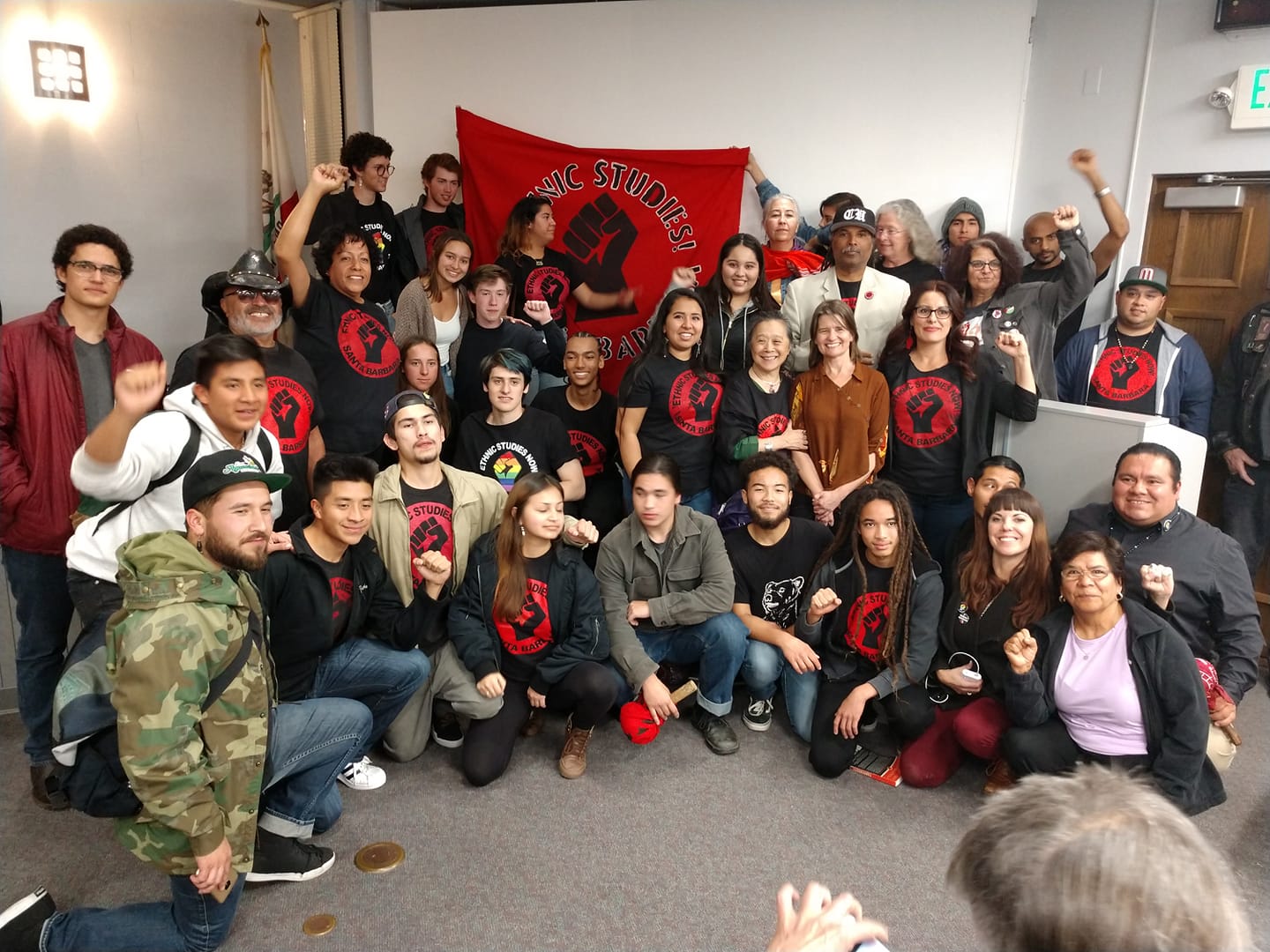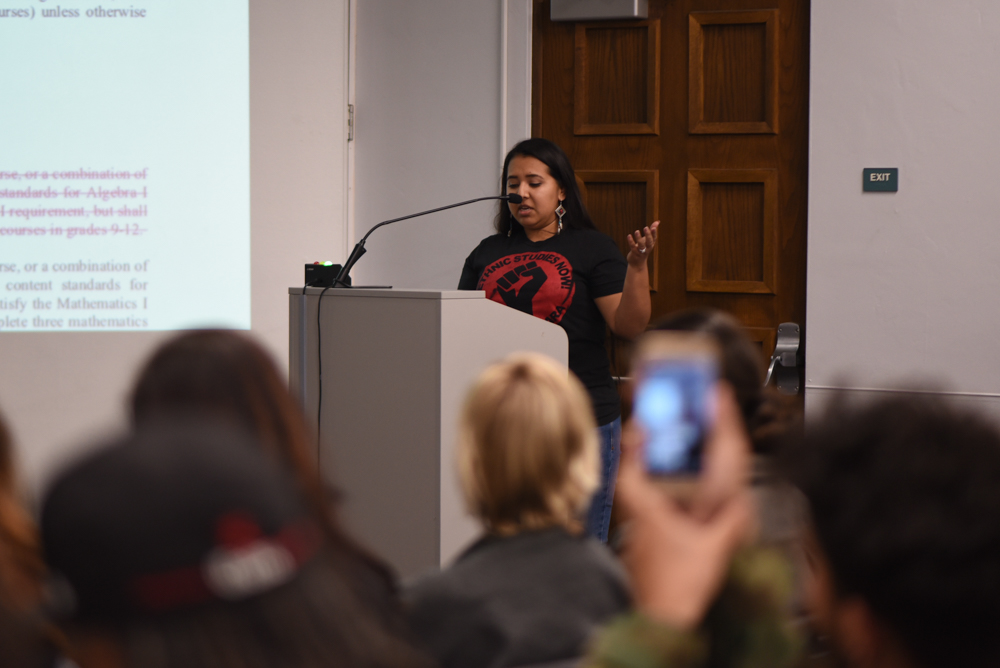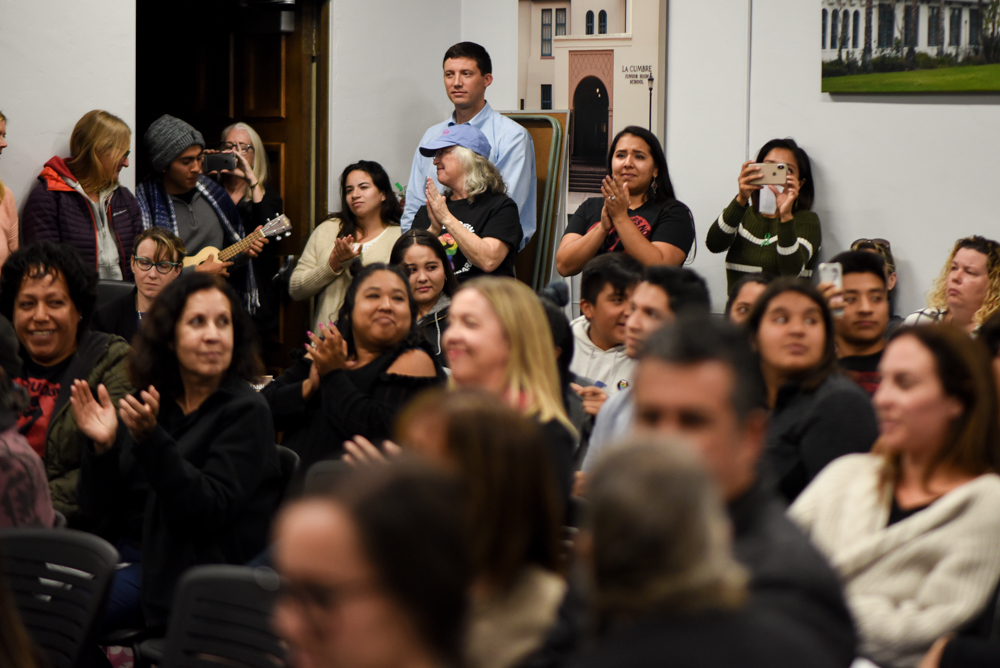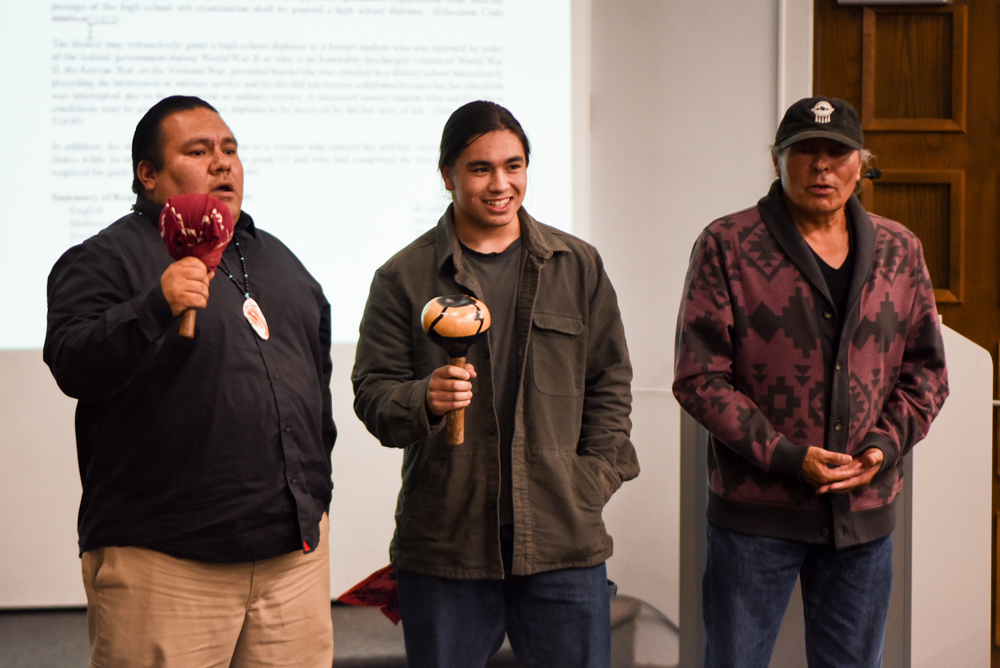Santa Barbara’s Ethnic Studies Movement Culminates in Updated Curriculum
High Schools Will Have Multicultural Graduation Requirement Starting in 2023

On the evening of December 14, 2015, Fabiola Gonzalez wasn’t sure how many people would come to the inaugural Santa Barbara Ethnic Studies Now! Coalition meeting. She had invited about 30 community members via email, asking them whether they would support integrating ethnic studies coursework into the curriculum at Santa Barbara Unified School District. Such coursework would aim to narrow the achievement gap between student minorities and their peers through the exploration of alternative historical and social perspectives. To her surprise, more than 40 people showed up to that first meeting, sparking a fervent movement that soon grew in numbers and momentum.
Three years later, members of the coalition sat through yet another meeting last Tuesday night, November 13. This time, they were waiting for ethnic studies to finally come to a vote before the school district’s five-member Board of Education. “You are part of this movement because you want a better future for our students, younger siblings, nieces, and nephews,” said Gonzalez, addressing the crowd, many wearing Ethnic Studies Now! t-shirts. The board’s decision was unanimous — Starting in 2023, the district’s high school curriculum will require ethnic studies coursework as a graduation prerequisite. The sustained enthusiasm in the room then erupted in cheers, laughter, and tears. Chumash community members closed the night in song.

Born and raised in Santa Barbara, Gonzalez was a self-described “typical good student.” She never received lower than a B in her coursework and was active in extracurricular activities on campus. In 2009, she graduated from Santa Barbara High School. Despite her strong academic record, Gonzalez, a first-generation Latina from a low-income household, found herself struggling in community college. “There was a moment where I could have easily gotten stuck or lost and given up,” she said. Then she took her first Chicana studies course, where for the first time in her academic career, her background and experience were reflected in her studies. “Those classes helped me look beyond my own life and barriers. They pushed me to work towards something greater than myself,” said Gonzalez. “But I was also frustrated that it took 19 years of my life to finally have access to an education about my own history, identity, experiences, and family.”
Courses in ethnic studies directly address the challenges that arise from cultural displacement and misunderstanding. Through an interdisciplinary framework, an ethnic studies education teaches students how race, ethnicity, gender, class, sexuality, and other social categories intersect. For student minorities, this means that their histories and contributions are validated within a broader narrative that traditionally has excluded them. It gives every student the opportunity to learn about the diverse people and cultures with whom they coexist in their communities. In ethnic studies contexts, a supportive and inclusive class environment makes it possible for students to have challenging conversations about power and difference. Decades of research proves that such an environment improves cognitive ability, improving grades, class attendance, and the ability to empathize for students from all backgrounds.
Gonzalez ultimately thrived in her education. She transferred to UCLA, where she earned a bachelor’s degree in Chicano Studies (and a minor in education) and a master’s at CSU Northridge. Along the way, she met activists who exposed her to the ethnic studies movement in Los Angeles and across the state. She believed high school students in Santa Barbara would benefit from ethnic studies classes, so she returned to her community, started researching, and reached out to educators and key community members who were as passionate about multicultural education as she was. Hosted by La Casa De La Raza, the first coalition meeting, in Gonzalez’s words, “proved to me that our community not only needs [ethnic studies], but that it is also hungry for it.” Through shared leadership, members of the coalition organized a movement that would ultimately be led and energized by those most affected by the cause: high school students themselves, who were out in force at last week’s school board meeting.

Just in the past year, Santa Barbara Unified students have grappled with threats on and off campus. In January, male students made death threats against their female peers from Santa Barbara and San Marcos High School via private video and chat-room messages. A month later, a school-shooting threat was found in the girl’s locker room at San Marcos High School. A similar threat was found earlier this month in a girls’ bathroom at Dos Pueblos High School. This, combined with heightened tensions brought upon by stark social and political divisions across the country, have led local activists to consider an education in ethnic studies as one possible solution to violence among students. “If the classes are taught properly, ethnic studies classes provide at the very least a safe space for students to think out loud about these issues and share these experiences,” said Gonzalez. “Having that space alone creates a tremendous impact [against] the kind of violence that happens at school everyday.”
Amid conflict, many high school students involved in the ethnic studies coalition have risen to become activists and leaders among their peers. Following in the steps of the students who witnessed the school massacre in Parkland, Florida in February, student activists from the coalition have organized and attended events and demonstrations throughout 2018, demanding social justice both locally and across the U.S.
Coincidentally, this year marks the 50th anniversary of the 1968 student strikes that led to the creation of the first ethnic studies department, at San Francisco State University. Similar programs and courses have since been adopted, sometimes divisively, across the country. Others have been defeated. Just this year, California Assembly Bill 2772 would have mandated all high school students throughout the state to complete an ethnic studies course to graduate. The bill was vetoed by Governor Brown in September. Despite this, model curricula on ethnic studies will be available by 2019 to standardize content and facilitate course adoption within California high schools. Additionally, Oxnard and Los Angeles Unified, along with nine other districts, have already implemented ethnic studies requirements.
Gaining the social benefits of ethnic studies, however, requires more than the availability of courses. Common threats to the success and vitality of ethnic studies programs includes the lack of permanent funding, adequate training for educators, who may or may not be familiar with ethnic studies curricula, and sustained institutional as well as community support. In Santa Barbara, members of the coalition worry that they would not be included in the implementation of the requirement.
The momentum bringing ethnic studies to the Santa Barbara Unified culminated during last week’s board meeting. “If it doesn’t happen now, I don’t know if it ever will,” said Gonzalez, a few months before the final vote. By then, coalition members had been working closely with district officials to make sure their proposition was ready — the finalized plan involves modifying district’s existing graduation requirements to include a five-unit ethnic studies course that’s transferable to the University of California and California State University systems. The units will not increase student’s required unit load, and will be part of core A-G subject categories.
On the night of the vote, the board meeting was packed with enthusiastic collation members and supporters. Also in attendance were a vocal minority who opposed the initiative during public comment, dismissing the requirement as race-baiting and anti-American. Despite these criticisms, board members unanimously offered praise and support.

“Not only is this a movement,” said board member Wendy Sims-Moten, “but it is a shift in culture, the way we think, and [the way we] have conversations moving forward.” Other board members pointed out that this is only one of many steps necessary for a more equitable future. “Let’s get this right so that other school districts follow suit,” said board president Jackie Reid, noting that the “real work” has just begun.
The night, however, belonged to coalition members celebrating their long-fought victory. “If there is one thing that ethnic studies teaches us is that we are makers of history,” said Gonzales. “And I believe that indeed tonight, we are making history.”


